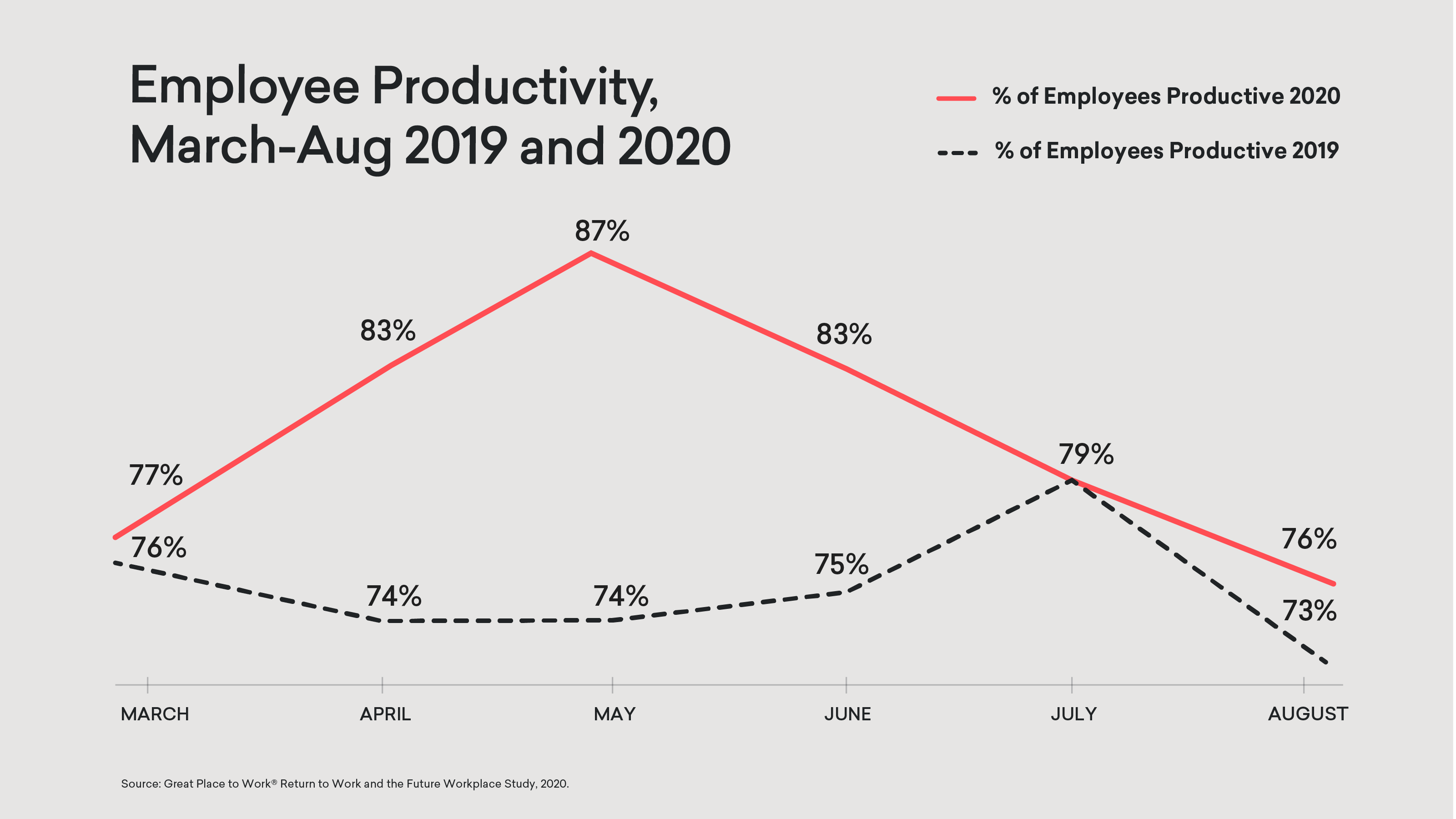
Roughly two years back, only 5% of Americans were working remotely. And then suddenly, the numbers went up to 90%. A survey of Fortune 500 executives showed an increase in virtual employees from 16% to 65%.
What earlier used to be a choice is now our reality. And with this massive shift in our work models, an obvious question arises, how productive are you when working remotely? Can remote work be viewed as a sustainable alternative?
Well, in a tangible sense, in remote jobs, employees have more autonomy over their work, don’t have to commute, and have a better work-life balance. But the feeling of isolation combined with increased stress has left many questioning the effectiveness of remote work.
Every coin has two sides. Similarly, remote work has its advantages and disadvantages. Getting back to the point at hand, are we more productive when working remotely? Let’s analyze that.
Also Read: Understanding the New Work Models
How Productive is Remote Work?
Great Place to Work conducted a study of 800,000 employees from Fortune 500 companies for two years. It reported that most remote employees were more productive compared to when they work in an office.
In two studies conducted from March 2019 to August 2019 and March 2020 to August 2020, the latter showed increased productivity.


Source: Great Place to Work
Another study conducted by Stanford University professor Nicholas Bloom of 16,000 employees in 2013 showed a 13% increase in productivity. Sick leaves decreased by 9%.
In a study, 65% of remote workers report that they feel more productive when not in the office. People work with more flexibility in home offices as opposed to corporate offices. Out of those, 86% rate their productivity as being either good or excellent.
Remote teams have fewer distractions noted a ConnectSolutions remote work-study. It said that fewer distractions are a major boost to productivity. Moreover, 76% claim more work due to fewer distractions, and 62% attribute better work to the less noisy work environment.
Productivity has increased as a result of remote work agreed 85% of businesses.
Bonus Read: How to Prevent Burnout
Remote Work: Making it Long Term
Lauren Mason, Senior Consultant at Mercer said that historically it is believed that if employees are not there in the office, they are not working. Most managers believe that at least efficiency takes a hit.
However, this forced working from home experiment has shattered such perceptions. If anything, it has been proven that employees can work just fine even if they are in full time remote position.
She also believes that now organizations are thinking long term. Therefore, the onus lies on how to make remote work work. Organizations are looking at ways to deliver flexible working without compromising on performance, employee productivity and employee experience. All this, at a reduced cost.
Recommended Reading: Managers’ POV on Remote Work
Remote work advocates are not surprised at all. They have for a long time supported the fact that remote work is great for employees. Elimination of commute is one of the major draws for remote workers.
In the US, the average one-way commute time is 26 minutes long. So, on average, an American spends 52 minutes on commute daily. That’s 200 hours per year!

Employees can better utilize all this time to stay productive and do what they really like.
Also, remote workers put in 1.4 days of extra work compared to office workers. Therefore, productivity increases!
Stats show that remote work is good for productivity. They prove that remote work is good for employees. However, the future will not be just limited to remote.
Introducing the Hybrid Work Model
It will be a balance of remote work and on-site work that is the hybrid work model. It combines the best of both worlds. In a hybrid work model, employees come to the office two or three days a week, and the rest of the days flexibility is provided to employees to work from anywhere.
Companies like Apple, Microsoft, HubSpot, Amazon, Google, Siemens, Salesforce, and many others have adopted a hybrid work setting. They have done this with a significant focus on remote work.
Bonus Read: What is a Hybrid Workplace?
To Conclude?
So, does remote work make you productive? Yes. That is what the data suggests. In a hybrid environment, with remote-first approach, it will stay relevant.
Are you looking to implement a hybrid workplace? With features like desk booking, meeting room management and employee scheduling, WorkInSync is the ideal hybrid workplace solution. You can opt for a demo to learn more.
Subscribe to our blog and stay updated with the latest hybrid workplace trends.

